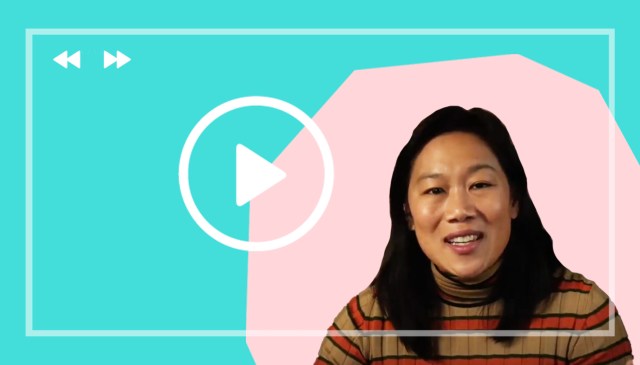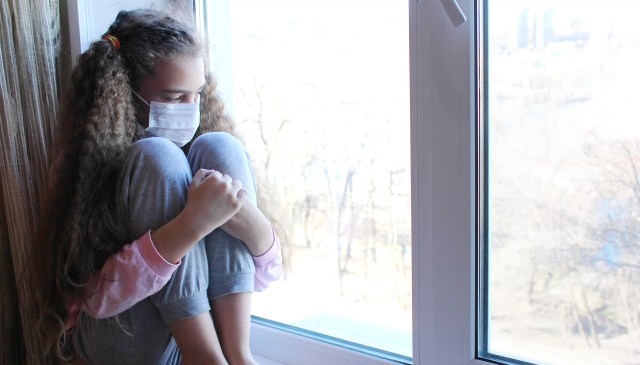May 4, 2020 · 6 min read
STAT: Striking Down DACA Would Eliminate Thousands of Health Care Workers, Thwarting America’s Pandemic Response
This piece was published in STAT on May 1, 2020.
The health care community has a responsibility to anticipate worst-case scenarios and develop response plans for epidemics that may be years or decades away. It should model how outbreaks might cause shortages in medical supplies and devise protocols to compensate for them. It should plan for what would happen if those protocols fail and shortfalls in staff or equipment make it difficult to provide care to each and every patient.
Crises like Covid-19 are stark reminders of the importance of making such preparations. They also reveal the gaps in our planning, along with scenarios that were so strange or unimaginable that we failed to see them coming.
Who could have foreseen that a once-in-a-century pandemic would strike at a pivotal moment for U.S. immigration policy, one that could strip tens of thousands of health care workers of their ability to practice medicine and take them away from their patients at the very moment they are needed most?
Unimaginable though it may be, that outcome may soon come to pass. In the coming weeks, the Supreme Court will render a decision on Department of Homeland Security v. Regents of the University of California, a case that will determine whether nearly 700,000 individuals protected by Deferred Action for Childhood Arrivals (DACA) will remain in the workforce, protected from deportation.
If the court strikes down DACA, then every DACA recipient — including 29,000 physicians, nurses, health aides, and technicians — could be forced from the United States within two years. Some could have only weeks.
That would thwart America’s pandemic response. The CDC estimated in mid-April that Covid-19 infections had removed 9,300 health care practitioners from the workforce. If DACA is ruled invalid, that number will quadruple. Hospitals would lose essential staff. The medical practitioners who remain would work longer and more dangerous hours. Patients would be likely to suffer worse outcomes. In short, Covid-19 would become more protracted, and potentially even more deadly.
This is just the beginning.
As physicians and leaders of health institutions, each of us has had the opportunity to work alongside DACA recipients. These young leaders have stood out as some of the most dedicated and promising medical professionals we’ve ever met. And losing them — during a pandemic or not — is a burden that neither the health care community nor our country can afford to bear.
If you were to meet Dr. Jirayut Latthivongskorn, who goes by New, you would agree. One of us (S.H.) got to know New when he was a student at the UCSF School of Medicine, and the other (P.C.) worked with him during her time at San Francisco General Hospital. Neither of us knew his immigration status back then, but we were both struck by New’s warmth, his sharp judgment, and his deep commitment to the practice of medicine. It came as no surprise to us when he became the first medical student with DACA to graduate from UCSF.
Today, New is caring for some of the Bay Area’s most vulnerable people, including patients with Covid-19, as a resident at San Francisco General Hospital. He worries about what will happen with the Supreme Court ruling, but that isn’t stopping him from providing the best possible care for his patients. “This pandemic is just another example of DACA recipients doing what we’ve always done,” he says. “We show up and show that we are a part of the fabric of America.”
Joana Cabrera is another young leader who is showing up. After graduating from the University of California, Berkeley, Joana came to work at the Chan Zuckerberg Biohub, which brings together researchers and engineers from Stanford, UC Berkeley, and UCSF. At the Biohub she designed and developed a custom device that is enabling UCSF to increase its coronavirus testing capacity. Thanks in part to the work Joana and her colleagues have done, the UCSF/Biohub expansion lab is now offering free coronavirus testing to all 58 county public health departments in California.
Joana and New are exemplary young leaders, but the reality is that America’s hospitals, clinics, and research institutions are full of talented professionals just like them. What happens if these young people are deported? What medical breakthroughs could we one day miss? And how many patients will struggle to get care, especially during the worst pandemic we’ve faced in a century?
That last question has an answer. Experts estimate that physicians and medical students with DACA will care for as many as 5 million patients over the course of their careers.
For these reasons and more, the two of us have spent the last several years advocating for young people with DACA. Three days after the federal program was abruptly halted in 2017, the University of California became the first university to file a legal challenge over its rescission. The Chan Zuckerberg Initiative signed onto an amicus brief in the lawsuit, and has since worked to highlight the contributions DACA recipients make to society — and to stopping the Covid-19 pandemic.
In recent days, we were glad to see that the Supreme Court will officially consider these contributions in its deliberations. We are hopeful that the justices will choose to preserve the status of DACA recipients in its ruling.
We also know that a truly lasting solution will come not through the courts but through Congress, which alone has the power to pass legislation that puts DACA recipients on the path to citizenship.
That is where you come in. Legislators, policymakers, and journalists are paying close attention to what the medical and scientific communities are saying right now. Your words carry immense weight during this pandemic, and you can use them to advocate for the young health care professionals who are every bit as vital to our response as masks and ventilators.
And we urge you to go one step further. The U.S. will need many more health care practitioners in the months and years ahead, not only to help with pandemic response and recovery but also to serve in roles and regions of the U.S. that have long been understaffed. Right now, we aren’t on track to meet that demand. That’s why we need broader reforms that will help immigrants without DACA enter the workforce as health care professionals, as well as reforms that will attract more practitioners to the U.S. in the first place. You can urge our lawmakers to make that happen.
There’s no time to waste. New, Joana, and thousands of our colleagues in medicine are counting on our support right now. And millions of Americans will one day count on theirs.
So help us make sure Congress and the American public know just how essential DACA recipients are. Their lives, and many more, may hang in the balance.
Priscilla Chan is a pediatrician and co-founder and co-CEO of the Chan Zuckerberg Initiative. Sam Hawgood is a pediatrician and chancellor of the University of California San Francisco.





